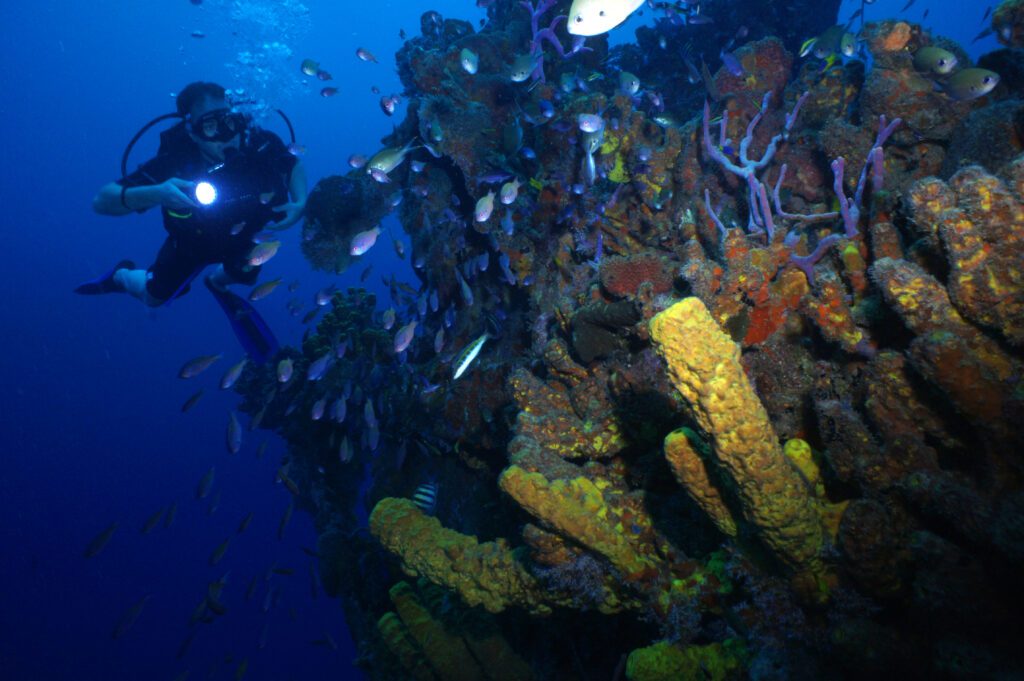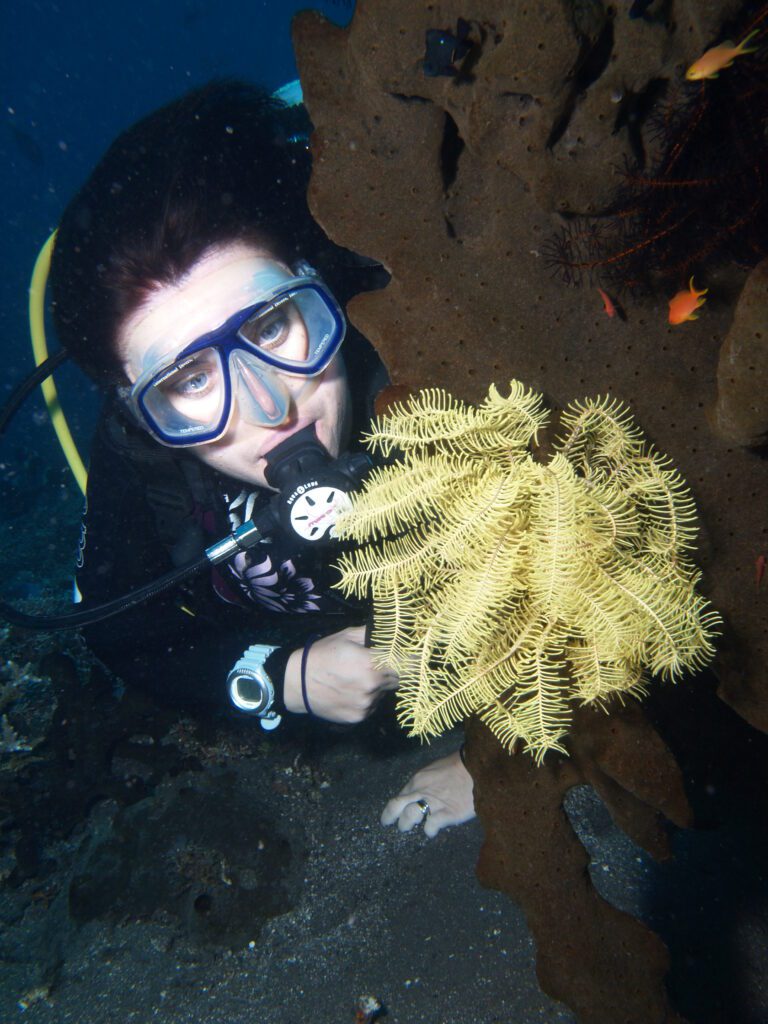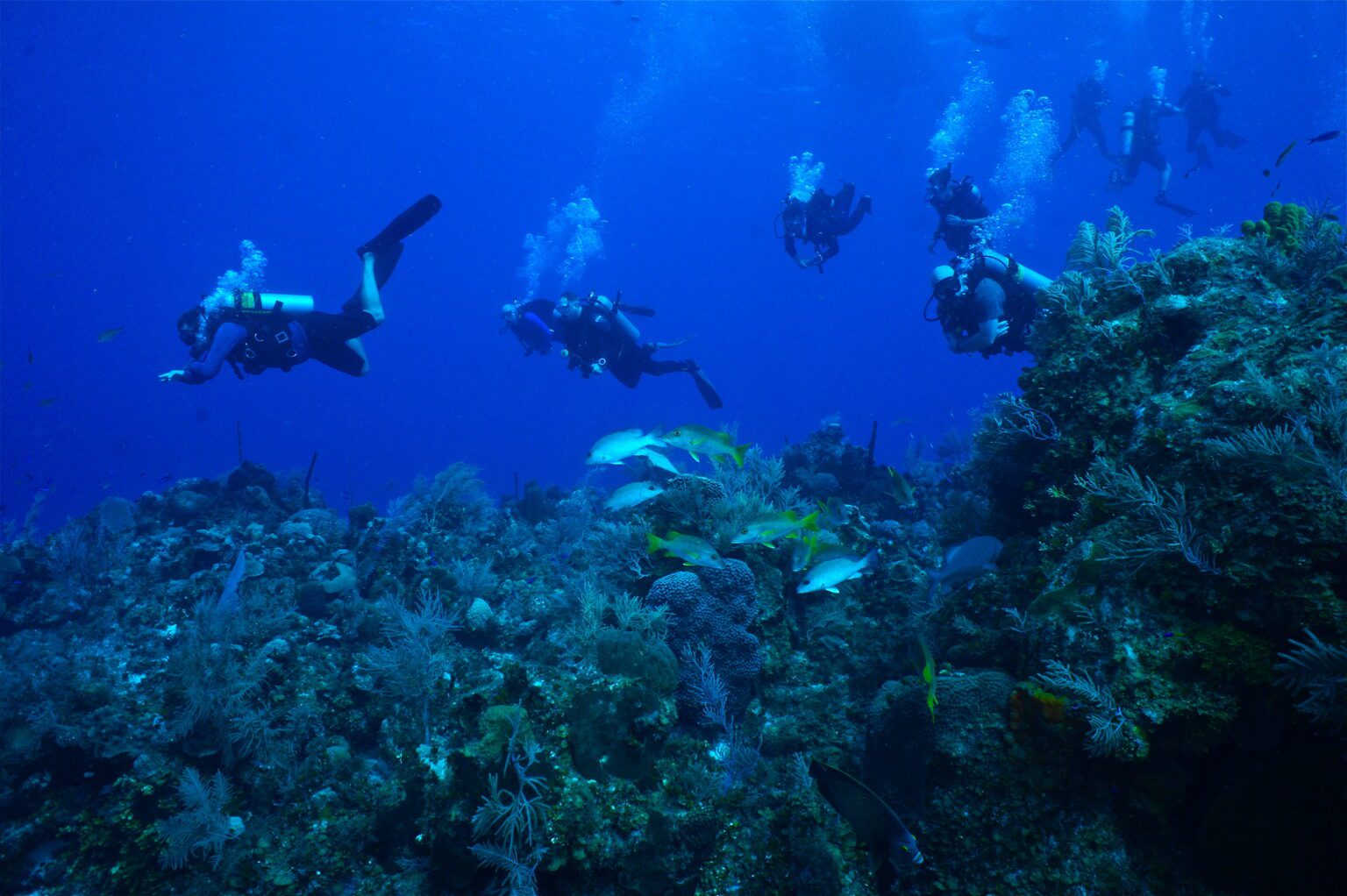DDRC Healthcare is a Plymouth-based not-for-profit organisation and UK charity specialising in diving medicine, hyperbaric oxygen therapy and medical training, and in the first of a new series, Dr Rosie Stokes looks at the theraputic effects of diving.
If I asked you to close your eyes and transport yourself to somewhere relaxing and peaceful, a lot of people would visualise the ocean, or waves breaking against a shore. For divers, this might be floating at neutral buoyancy watching a coral reef or enjoying a drift dive.
Scuba diving has long been recognised as a having a positive impact on mental health. In general, outside activities and being fit and active helps to increase energy levels, mental alertness and confidence. Many divers find that the underwater environment allows for peace and tranquillity; it is quiet, weightless and the focus becomes your deep, regular breathing. On top of this, sharing these experiences with a group that share your passion can evolve into friendships and a support network.
For groups that have faced adversity, such as those with disabilities or PTSD (post-traumatic stress disorder), scuba diving can be even more impactful. Specialist dive schools have helped these groups of people to experience newfound freedom from their physical and/ or mental difficulties. This has become much more accessible since the development of PADI Adaptive Techniques and BSAC Diving for All.

Keeping calm and composed
Of course, peace and tranquillity are not always the reality of every dive and when we talk to divers about mental health, we must be careful not to dismiss the potential stressors or triggers for anxiety that may occur. Diving is an extreme sport, and safety must always be a priority. Being able to react to an unexpected situation in a calm manner in the procedure in which we have been taught can be the difference between life and death.
Issues such as malfunctioning equipment, a leaky drysuit or worrying about a buddy can quickly increase anxiety levels. If you throw an emergency into that mix, then it can be difficult to predict how anyone may react.
Diving with a mood disorder
For current divers who have developed a mental health disorder, or for people interested in learning to dive with a history of mental illness, we must consider how this may impact on their diving safety.
For those with depression, some of the common symptoms can be poor concentration, difficulty with decision making, anxiety and poor-quality sleep. If you are experiencing these symptoms, then it is best to avoid diving as you won’t be in a good position to react in an emergency. If you are on treatment and your symptoms have improved, then you will be better placed to consider starting or returning to diving.
If you suffer from uncontrolled anxiety or panic attacks, then you should not dive. This is because panic underwater can quickly put yourselves and others at risk – not only of drowning if you lose your regulator, but also decompression illness or damage to your lungs if you make a rapid/ uncontrolled ascent.

If you are on medication for your mood, then you need to declare this to your dive doctor. This is because there are some risks involved if you dive while taking certain medications. Some of the older antidepressants such as tricyclics are unsafe to dive on as they can cause problems with the heart.
For the modern medications (called SSRIs) the risk is less, but you must discuss this with your dive doctor, as you are likely to need to stay within a depth limit to minimise risk of injury. There is also a theoretical risk that medications that alter your mood may worsen nitrogen narcosis at depth.
For other mental health disorders such a bipolar, behavioural Issues, or personality disorders, understanding your risk underwater can be complex. While it is possible to dive with mental health disorders, the impact on your decision making, safety, and the impact of medications you may take must be considered first.
Coping after an accident
If you have had the unfortunate experience of an accident while diving, or witnessing an incident, this can have a profound impact on mental health. When accidents happen underwater, they can quickly become extremely serious, if not fatal.
It is important to talk about these experiences with others and consider how it may affect your future diving. It would be a good idea to share your experiences with your buddy or dive instructor so that they are fully appraised of any concerns or issues that you may have, before you get in the water.
It may also be a good idea to share you experience with a healthcare professional, such as your GP or your dive doctor. There are also some clinical psychologists who specialise in diving. One psychologist we have referred divers to before is Dr Laura Walton.
Dr Laura Walton is a clinical psychologist who specialises in psychological services for divers, such as therapy following adverse events in diving. As well as diving-related anxieties and phobias she offers support for wider mental health and wellbeing via online, individual and group, consultations.
She has developed a resource centre to support divers after an accident.
Whilst talking about the incident and sharing your experiences may help some, there are other evidence based therapies available such as CBT (Cognitive Based Therapy) and EMDR (Eye Movement Desensitisation Reprocessing).
If you live in the UK and you are concerned about the impact of your mental health on your safety to dive then you can book a telephone consultation with one of our doctors here at DDRC.








